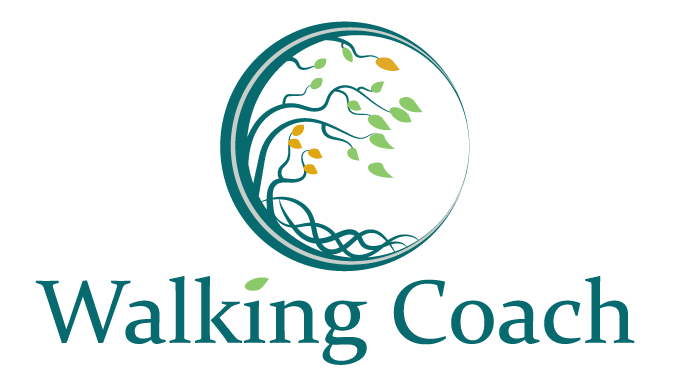How Nature-Based Leadership Development Transforms Modern Organisations and Communities
Originally published in 2016, this article has been updated and refreshed for 2025 to reflect current insights on leadership, personal development, and the evolving role of nature-based practices in our rapidly changing world.
Since 2008, Walking Coach has worked with and through the natural world to provide transformative learning and development experiences for leaders from across the business world. Yet understandably, you might wonder: what has nature got to do with organisational life or leadership? And why does it matter now more than ever?
The Evolution of 21st Century Leadership
Leadership is at a crossroads—and the tension is palpable in organisations everywhere.
In the old paradigm (when I was last a corporate employee), leadership was centred on hierarchy. The top dog held all the power and control, expecting loyalty and followership by virtue of position alone. Command and control was the name of the game.
Here's the uncomfortable truth: whilst the world has fundamentally changed, most organisational leadership cultures remain stubbornly stuck in these outdated patterns. Despite all the talk of transformation, flat hierarchies, and agile leadership, scratch beneath the surface and you'll often find the same old power structures, the same fear-based decision-making, the same short-term thinking that got us into our current crises.
Yet alongside this resistance, a quiet revolution is emerging. Forward-thinking leaders are recognising that our complex, interconnected world demands something entirely different. This new leadership isn't about entitlement or position—it's about creating positive change in your own life and rippling that transformation outwards.
Contemporary leadership means:
Understanding the interdependent nature of all systems—that changing one element transforms everything
Enabling others to flourish in your organisation, community, and beyond
Living by example whilst promoting justice, sustainability, and authentic collaboration
Embracing continuous learning and adaptation in an increasingly complex world
Most fundamentally, being skilled at building meaningful relationships
In our globally connected era, where climate change, social inequality, and technological disruption affect everyone, leadership becomes a way of "being in relationship"—not just with people, but with all living systems.
The Hidden Crisis in Modern Organisations
Here's the uncomfortable truth: we humans are part of an entirely interdependent Earth system, yet most of our organisational cultures operate as if this fundamental reality doesn't exist.
Our ancient ancestors understood this connection intimately. Their entire lives were woven into nature's rhythms and cycles. But over centuries, our remarkable human intellect and creative capacity have led us to develop lifestyles, systems, and organisational cultures that—as we're now discovering—have destructive impacts on our planet, our communities, and ourselves.
The cost of disconnection is everywhere:
Burnout rates reaching epidemic proportions
Mental health crises in workplaces globally
Environmental degradation accelerating despite corporate sustainability pledges
Increasing social division and inequality
Decision-making driven by short-term thinking rather than long-term wisdom
Ecopsychologists argue that by creating this growing gulf between ourselves and nature, we unconsciously cause harm to the very systems that support our existence—even though intellectually, we claim to know better.
When Systems Get Sick, We Get Sick
In a downward spiral that's impossible to ignore, as our planetary systems become increasingly stressed, we humans become increasingly unwell—physically, psychologically, and spiritually.
Separated from our natural 'home,' many of us experience a deep, disquieting sense of alienation that surfaces in countless ways: chronic stress, anxiety, depression, addiction, procrastination, rage, and a profound sense that something essential is missing from our lives.
The symptoms show up everywhere:
Teams that can't collaborate effectively despite expensive training programmes
Leaders who feel overwhelmed by complexity and constant change
Organisational cultures plagued by competition rather than cooperation
Decision-makers struggling with short-term pressures over long-term sustainability
Employees feeling disconnected from purpose and meaning in their work
This might seem overwhelming to consider, yet deep down, most of us recognise that something fundamental isn't working in how our civilisation—and our organisations—currently operate.
Addressing the Sceptics: Why This Isn't Just "Tree-Hugging"
Before we go further, let's acknowledge the elephant in the room. Many hard-nosed business leaders will read this and think: "This sounds lovely in theory, but I've got quarterly targets to hit, shareholders to answer to, and competitors breathing down my neck. I don't have time for philosophical forest walks."
Fair enough. Let me address the practical concerns head-on:
"Where's the ROI?" The research is actually quite compelling. Studies show that exposure to nature improves cognitive function by 20%, reduces cortisol (stress hormone) levels by 50%, and increases creative problem-solving by up to 60%. Companies like Patagonia, Interface, and Unilever have integrated nature-based practices and consistently outperform their peers on both financial and innovation metrics.
"This won't work in my industry." I've worked with everyone from investment bankers to manufacturing executives to tech leaders. The principles translate because they're about fundamental human neurology, not industry specifics. A stressed, tunnel-visioned leader makes poor decisions whether they're on a trading floor or a factory floor.
"What about urban environments?" You don't need the Scottish Highlands. Even 15 minutes in a city park, or walking meetings outdoors, create measurable improvements in mental clarity and decision-making. Some of the most effective sessions I've facilitated have been in urban green spaces.
"How do you scale this?" The same way you scale any leadership development—through systemic change, not just individual experiences. Forward-thinking companies are redesigning office spaces to include natural elements, moving meetings outdoors when possible, and incorporating walking meetings into their culture.
"What about real crises?" Here's the irony—leaders who regularly practice this kind of awareness are actually better in crisis situations. They're less reactive, more able to see the bigger picture, and make decisions from clarity rather than panic. The U.S. military has been incorporating mindfulness and nature-based resilience training for exactly this reason.
"What about AI?" This might be the most important question of all. As artificial intelligence handles more analytical tasks, the uniquely human capacities become more valuable, not less. AI can process data and identify patterns, but it can't provide the wisdom, emotional intelligence, ethical judgment, and systems thinking that complex leadership decisions require. Nature-based practices specifically develop these irreplaceable human capabilities—the very skills that will differentiate human leaders in an AI-augmented world.
Moreover, as we become increasingly immersed in digital environments, the risk of losing touch with fundamental human needs and natural intelligence grows exponentially. The leaders who will thrive are those who can seamlessly integrate technological capabilities with deep human wisdom—and that wisdom emerges from reconnection with living systems, not from more screen time.
The bottom line? This isn't about escaping business realities—it's about showing up to them with greater capacity, clearer thinking, and more sustainable energy.
The Ripple Effect of Leadership
Here's the profound reality: who we are and how we lead creates ripple effects that extend far beyond our immediate sphere of influence.
Our personal patterns, unconscious behaviours, and leadership choices carry through our relationships and systems, affecting colleagues, communities, and ultimately our shared environment. This influence then ripples back, further shaping who we become and how we show up.
Every leader participates in creating the world we inhabit—for better or worse.
Whether we're leading a small team or a global organisation, our daily choices contribute to either regenerative or degenerative patterns in the larger systems we're all part of.
Nature as the Gateway to Transformation
So where do we begin? How do we develop the kind of leadership our times demand?
If building relationships where both people and their environment can flourish is core to future leadership, then nature provides the perfect starting point for anyone seeking to transform their impact entirely.
The neuroscience is clear: when we spend meaningful time in natural landscapes, measurable changes occur in our brains and bodies.
In the peace and beauty of natural environments, our senses awaken whilst the constant mental chatter of our everyday minds quietens. Away from urban noise, technology overload, and chronic work stress, we experience:
Renewed personal ease and emotional healing
Greater clarity and open-mindedness
Enhanced creativity and problem-solving capacity
A sense of 'coming home' that many experience but struggle to explain
Deeper connection to ourselves, others, and our larger purpose
Our brains literally enter new states that are more inspired, creative, and receptive than what's typically possible in conventional office environments.
Nature facilitates a gradual process of expansion that enables us to connect more holistically—to ourselves, our teams, our organisations, and our planet.
This is where genuine healing begins, both for individuals and for the larger systems we're part of.
The Urgent Need for Reconnection
Research reveals a stark reality: in our nature-separated society, 95% of our time and 99.9% of our thinking occurs disconnected from natural systems. For many leaders, this disconnection may be even more extreme.
Yet the leaders who are creating the most positive impact in our world today share common characteristics:
They understand their work as part of larger living systems
They make decisions considering long-term consequences, not just quarterly results
They prioritise regenerative practices over extractive ones
They lead from a place of interconnection rather than isolation
They model the integration of human needs with planetary health
Your Leadership Journey Starts Here
The transformation our organisations and communities desperately need won't come from new management theories or complex frameworks. It emerges when leaders reconnect with the wisdom that's always been available—the intelligence of living systems that have sustained life on Earth for billions of years.
Nature-based leadership development isn't a luxury—it's an essential skill for navigating the complexity and uncertainty of our times.
Whether you're leading a startup, managing a department, or guiding an organisation through change, your capacity to think systemically, act wisely, and inspire others grows exponentially when you remember your place in the larger web of life.
The invitation is simple: step outside. Pay attention. Begin to remember what you've always known but perhaps forgotten in the rush of modern organisational life.
The leaders our world needs aren't just those who can navigate spreadsheets and strategic plans—they're those who can navigate the delicate, complex, beautiful systems that sustain all life.
And that transformation begins with you, in your next step outdoors.

